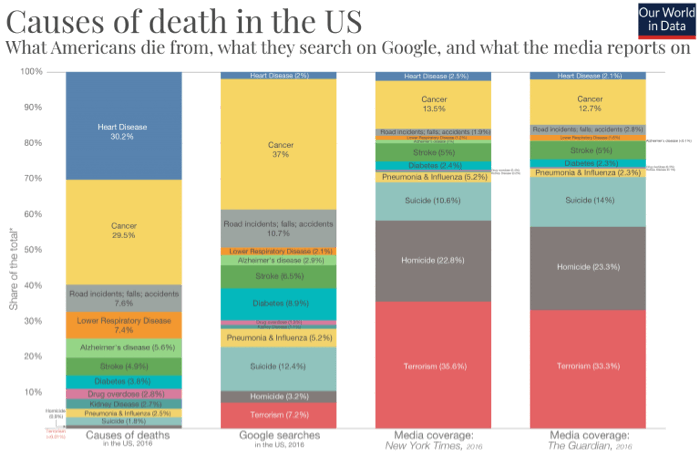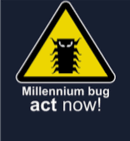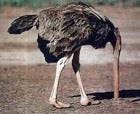Ignorance is bliss (most of the time)
The saying “ignorance is bliss” originated in 1768 from the English poet Thomas Gray. The meaning was never to say that being stupid makes you happier, but instead, being less informed can be blissful.
If ignorance was bliss back in 1768 without all of today's omnipresent media then it’s even more poignant today.
Currently, we’re over-informed, we know about anything and everything as soon as it happens. But what’s the point? The barrage of information we subject ourselves to is mostly irrelevant and often erodes our mood. Which is very unblissful.
What is information?
Although we naturally think of information as things like news, books, data and the like, which it is, it's also everything else. A painting is information, so is music, a cup and your sofa.
It's fair to say that certain information is good for us while other information is bad, some is useful and some is not.
There are no hard and fast rules, but with that being said, here are my broad-brush classifications.
Not all social media can be considered bad information; seeing a friend's wedding photos posted on Facebook is good (assuming it improves your mood) as is learning something new on a useful Reddit forum. Needless to say, there's a lot that diminishes our mood. As for the news media and being told how to think, I struggle to find what is useful, however, some local news could be and of course the weather.
Examples of "ignorance is bliss"
Mood altering information
Unless information is useful or improves our mood then what's the point of knowing it? Useless information that has a neutral effect is harmless. But useless information that erodes our mood should be avoided at all costs. Unfortunately, we are bombarded with the latter every day. This negative and useless information is not just from news and social media though. There are many shapes and forms.
One thought experiment I like to ponder is that of owning a painting. Imagine for a moment that you collect fine art, not to make money, only to enjoy inside your home. You have a favourite -- one that you'll never sell. Every day you stare at this painting and it gives you deep joy. But unaware to you, it's fake. By learning that it's fake you'll never look at this painting the same again, the deep joy you once had will disappear. How is knowing this useful, surely ignorance is bliss?
The news media
If there's one example of "ignorance is bliss" then the news media is it. We all know it as "the news" but it's not. It's a minute subset of what's going on in the world and it's always bad news. And "bad news" is a more accurate way to label what's being force-fed. The news is negative purely from a marketing perspective because it increases engagement and profit.
The news media's detachment from reality is perfectly illustrated in the chart below. From left to right: what people die from, what people search on Google for, what the New York Times and The Guardian report on.

Good news doesn't sell. Given the choice between being well-informed and sad or ignorant and happy, what would you prefer? Being ignorant of the news will improve your mood but doesn't make you stupid.
Speculation
Human beings love to speculate. If there's one category of information that's the least useful it's speculation, yet we're surrounded by it. The news media is full of "what if ..." scenarios as it fills pages and airtime. But what's the point of knowing something that hasn't and possibly won't happen?
One of the greatest examples of this was the Millennium bug. Consultants got rich on what turned out to be a load of over-hyped nonsense. We were told that planes would fall out of the sky at the stroke of midnight, yet nothing happened. Facts can be useful but speculation is a waste of our time and energy.
Ignorance not being bliss
Not everyone believes in ignorance being bliss. The Guardian put the question to their readers: is ignorant bliss better than knowledgeable gloom? Most responses were in favour of being well-informed over being happy which is probably unsurprising considering the question was put to an audience of avid newspaper readers. One reply that stood out was from Valentine_44.
This is where I go back to my original point: information needs to be useful. If you're taking the doom and gloom from the news and doing something useful with it; attending a protest or writing to your MP then I get it. However, if you're like the overwhelming majority who don't use the information for anything other than warped entertainment then you'll be walking around with a dark, heavy cloud just like Valentine_44.
The ostrich effect
The ostrich effect is a widely known psychological phenomenon that impacts us all. It's where we ignore or choose to not want to know information, or to bury one's head in the sand.
An example of this is not going to the doctor or doing health checks as you'd rather not know. This is clearly an example of where ignorance is not bliss and having bad news which seriously deteriorates the mood is better known sooner than later.
But ostrich effect aside, I strive to be more ignorant.
Becoming more ignorant
Staying ignorant to all the world's woes used to be as simple as not buying the daily newspaper. It's no longer as straightforward. Big Tech's number one priority is to increase the time we waste on their platforms and one tactic is to inject the daily depressing news -- you can't help but see it with no way of opting out. Here are three tips:
Block Twitter trends because it's rarely good news that's trending. This means not using the app and only accessing Twitter via a browser with an installed plugin. Ad Guard and Hide Twitter Trends for Chrome are a couple.
Delete Youtube viewing history. Until I deleted my Youtube history I found I was constantly being subjected to breaking news with no way to opt-out. This is also a good way to reset how you've been pigeonholed by Google.
Check your phone less. Remember that we live in an economy where our attention is being stolen for profit. So disable all phone notifications. Set a recurring reminder schedule to check messages instead, for example: a prompt at 8am, 12pm & 4pm. Unless this is done, it's easy to start checking apps like a zombie whenever there's a minute of boredom.
What's the point of life?
When considering a topic, it often helps to boil things back to their essence. What's the purpose of life? Many would agree that it's being happy or as Aristotle put it, to live a "good life". If you agree with this then you have to agree that being ignorant is (at least most of the time) bliss.






